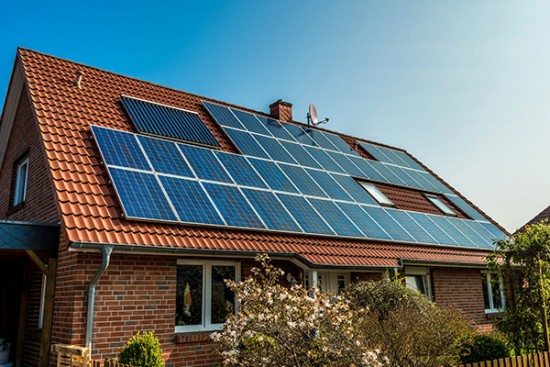|
With home solar becoming increasingly popular, many homeowners are wondering if solar power is a good choice for them. Learning a bit about home solar power can help you decide.
Residential rooftop solar is usually the easiest way to generate renewable electricity for a home. While a solar panel array isn’t necessarily the best option for every home, it is suitable for many more roof types and locations than you might think. Here are the answers to four common questions that Canadian homeowners have about home solar.
Is Solar Power a Viable Option in Northern Climates?
Yes, solar power is absolutely a viable option in northern climates. In fact, many parts of Canada outshine even Germany – the world’s leading producer of solar electricity – in terms of solar resources.
Canada’s long summer days provide ample opportunity for collecting enough sunlight to meet much or even all of a home’s electricity needs. Solar panel arrays can also be oriented and mounted in such a way so as to collect the maximum amount of available sunlight during the winter. Plus, colder temperatures can actually improve a solar panel’s efficiency. Locales that receive a lot of snow will notice a further boost to solar panel efficiency as sunlight that hits the ground is reflected back to the array.

Are Solar Panels Difficult to Maintain?
No, not at all! Because solar panels don’t have any moving parts, they typically don’t require any mechanical maintenance. Once in a while, however, you should perform a thorough visual inspection for any signs of damage or loose wiring. The occasional rain is also usually enough to keep solar panels clean and running at peak efficiency. If it hasn’t rained in a while, then you can easily clean your solar panels yourself by giving them a rinse with a garden hose.
What is the Difference Between Solar Panels and Solar Shingles?
Most people are familiar with the type of large, rectangular solar panel that sits on top of a roof’s existing roofing material. A solar shingle is essentially just a smaller type of solar panel that replaces a roofing shingle. Both utilize the same type of technology.
Solar shingles tend to be more expensive than an equivalent solar panel array, but many homeowners also find them to be more aesthetically appealing. Where curb appeal is a top priority, the extra price of solar shingles might be worthwhile. Plus, just like solar panels, solar shingles have steadily decreased in price over the last few years.
Is Solar Power a Good Investment?
Yes, a south-facing and un-shaded solar panel array is almost always going to represent a good investment. Of course, you’ll want to carefully budget for the initial installation cost. Across Canada, the cost of installing a typical 4 kW residential solar power system is about $14,000 to $16,000. Incentives and rebates are available in many provinces to help homeowners recoup some of the costs.
While the initial investment may be pricey, solar panels and solar shingles can easily pay for themselves through savings on your energy bills over the long term. A typical solar panel can last up to 30 years and will likely only incur minimal maintenance costs over its lifespan. Solar panels can also increase the value of your home by as much as $6,000 per kW. A home that promises lower energy bills is much more attractive to potential homebuyers.
Having a solar panel array or a solar shingle roof installed is one of the most worthwhile home improvements that you can make today. It will begin paying off the minute you start collecting free solar energy to power your home.
|